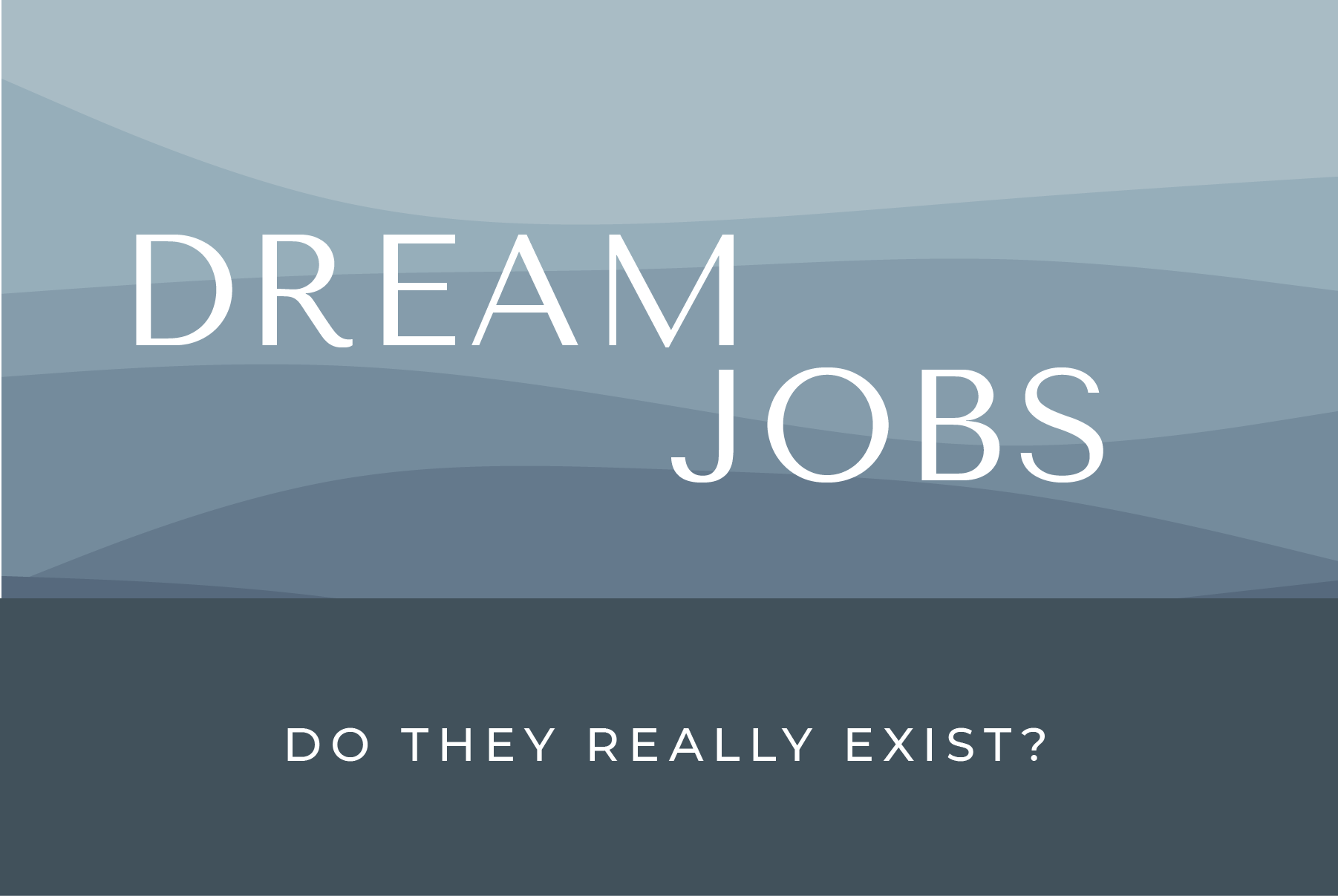
Dream Jobs | Do They Really Exist?
Recently when discussing some frustrations surrounding a work place indiscretion and how it was handled (or more aptly how it was not handled) by the powers-that-be, my friend and colleague remarked, “I don’t go to work to have my needs met.” Cue my existential crisis in response.
As I’ve continued to replay the conversation, I realize that now I could care less about the indiscretion or its lack of “public relations finessing”, instead I’m left in a mixed state of cognitive dissonance facing both the impending doom of the unknown and the refreshing optimism surrounding my career path. In one well-timed quip, my entire approach to my career progression, my work history and education, and my identity were called into question: who am I if the title I chased and achieved isn’t a cornerstone to my significance? As it turns out, on the heels of the pandemic, many of us are grappling with the same question: does a dream job actually exist? And, if it doesn’t can we free ourselves by working to live rather than living to work, and stop relying on our work to meet our soul’s needs?
According to psychologists at Stanford University and Yale-NUS College, there is a reason so many of us are shaken when we recognize that the ‘dream job’ is just as fleeting, and just as much of a well constructed rhetorical gimmick as the ‘American Dream’. We are thrown into the depths of existential despair in large part due to the years of planning, financial investment, and time spent (all, now perceived as lost) because we have hung our soul’s hopes and dreams on the ‘fixed’ hook of our dream career. Instead, the report’s findings espouse a ‘growth’ mentality as the key to fulfillment; this mentality, combined with our resilience, allows us to adapt to an ever-changing work force and to “think innovatively about [our] industry.” When we become “overly narrow and committed to one area, that could prevent [us] from developing interests and expertise that [we] need” to bring different fields together.
But, the silver linings in abandoning the notion of “do what you love and you’ll never work a day in your life” (you’ll also never have healthy boundaries, or an identity beyond your work either) abound.
Instead of holding a dream that centers upon our labor for someone else’s financial gain, we should be shaping our dream life, and pursuing a job that is the right fit for our current needs in that pursuit. In short, our job should support and fund our dream life, instead of our ‘dream job’ becoming the origination and determinant of every aspect of our life beyond the boardroom.
When we can let our idealized perceptions of ‘the one’ go, we begin to recognize that finding fulfillment beyond our career, allows us to pursue benefits we may have never thought to consider —like working remotely, a flexible schedule, a better salary, an easier commute— the list is only limited by our own ‘need’ to have a job be paramount. If we can view ourselves, and our contribution to the world as separate from our work, we can invest our passion in our soul’s desire and let work, be well, work.
Rather than shape our life around accommodating our dream job, what would happen if we turned the tables, and instead pursued a job that allowed us to attain our dream life? Take note from the Career Contessa, and pursue your next step in your career like you would any other physiological need in your life (e.g. a house hunt): make a list of your negotiables, non-negotiables, and everything in between. Address your wants, and needs, and determine your required and ideal salary (do your research!); consider the day-to-day of your job and what constitutes a must-have versus a nice-to-have. And finally, begin making your list of ideal companies and industries that feel like the right fit for your life’s dream.
Our fulfillment of our soul’s desire and our significance in the world are not reliant on our job title. When we pursue fulfillment beyond our work, when we work to live rather than live to work, we can grow professionally, and personally toward our life’s dream. There is freedom in knowing we are in the driver’s seat, and that we can decide to change directions at any point. Our colleagues may be talking about us around the water cooler one day, for our audacious pursuit of happiness beyond our ‘dream job’.


Post a comment:
You must be logged in to post a comment.